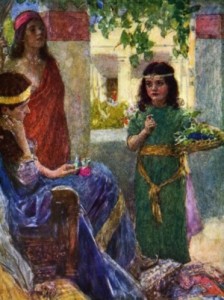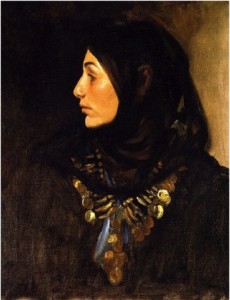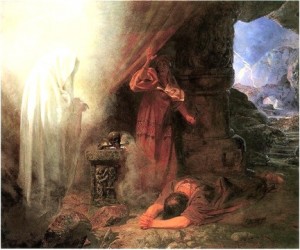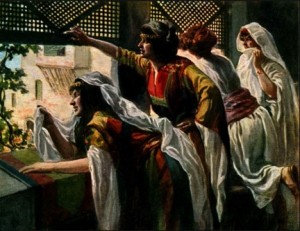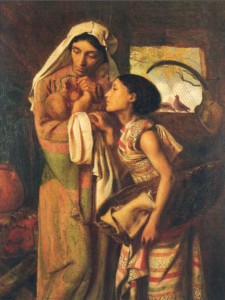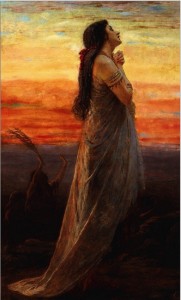
“Then the Spirit of the Lord was upon Jephthah And Jephthah made a vow to the Lord and said, “If you will give the Ammonites into my hand, then whatever comes out from the doors of my house to meet me when I return in peace from the Ammonites shall be the Lord’s, and I will offer it up for a burnt offering.” So Jephthah crossed over to the Ammonites to fight against them, and the Lord gave them into his hand… Then Jephthah came to his home at Mizpah. And behold, his daughter came out to meet him with tambourines and with dances. She was his only child; besides her he had neither son nor daughter. And as soon as he saw her, he tore his clothes and said, ‘Alas, my daughter! You have brought me very low, and you have become the cause of great trouble to me. For I have opened my mouth to the Lord, and I cannot take back my vow.’ And she said to him, ‘My father, you have opened your mouth to the Lord; do to me according to what has gone out of your mouth, now that the Lord has avenged you on your enemies, on the Ammonites.’So she said to her father, ‘Let this thing be done for me: leave me alone two months, that I may go up and down on the mountains and weep for my virginity, I and my companions.’ ” (Judges 11:29-37)
The judge and general Jephthah maked a vow to sacrifice the first thing that came out of his house when he returned victorious from battle. When it was his daughter who danced out of his house, he maked no effort to rescind his oath. To further complicate matters, Jephthah made his vow under the influence of the Spirit of Yahweh. His military victory seems to be a tacit acceptance by God of the terms of his vow. Lev. 27:1-8 stipulates a payment can be made to annul a vow made to God. My first question is obvious. Wasn’t there a way to avert this tragedy? Continue reading Jephthah’s Daughter: How to Regard the Silence of God →


